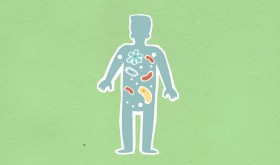
In recent years, a concerning trend has emerged in the landscape of colorectal health: the rise of early onset colorectal cancer (CRC). This term refers to colorectal cancer diagnosed in individuals under the age of 50. Historically considered a disease of older adults, the increasing incidence of early onset colorectal cancer presents unique challenges and calls for a deeper understanding and targeted strategies for prevention, diagnosis, and treatment.
Lifestyle Changes and Early Onset CRC
Changing Lifestyle and Diet: Lifestyle and dietary changes over the past few decades are thought to be major contributing factors to the rise in early onset colorectal cancer. Diets high in processed foods, red meat, and low in fibre, combined with increased sedentary lifestyles and obesity, are all risk factors for CRC. Younger populations are increasingly exposed to these risk factors, contributing to the growing incidence of the disease.
Understanding Genetic Risks in Young Adults
Genetic and Familial Factors: While lifestyle plays a significant role, genetics and family history are also important factors in early onset colorectal cancer. Individuals with a family history of colorectal cancer or inherited syndromes such as Lynch syndrome and familial adenomatous polyposis (FAP) are at a higher risk. It’s crucial for these individuals to undergo early and regular screenings.
Recognizing Symptoms and Raising Awareness
Symptoms and Awareness: A significant challenge in addressing early onset colorectal cancer is the lack of awareness among younger individuals about the symptoms and risks. Symptoms like changes in bowel habits, blood in the stool, abdominal pain, and unexplained weight loss are often overlooked or attributed to less serious health issues in younger people. This can lead to delays in diagnosis and treatment.
The Importance of Early Screening and Detection
Screening and Early Detection: Early detection is key in improving survival rates for colorectal cancer. However, current screening guidelines typically recommend starting at age 50 for those at average risk. With the rise in early onset cases, there is a growing debate about lowering the screening age. For individuals with a family history or genetic predisposition, screenings should start much earlier and be conducted more frequently.
Healthcare Providers’ Role in Early CRC Diagnosis
Role of Healthcare Providers: Healthcare providers play a crucial role in addressing the rise in early onset colorectal cancer. They need to be aware of the increasing trend and consider CRC as a possible diagnosis, even in younger patients. A thorough evaluation of symptoms, family history, and risk factors is essential.
Effective Prevention Strategies for Younger Populations
Prevention Strategies: Prevention strategies are key in combating the rise in early onset colorectal cancer. This includes promoting a healthy diet rich in fruits, vegetables, and whole grains, encouraging regular physical activity, maintaining a healthy weight, limiting alcohol consumption, and avoiding smoking.
Fostering Research on Early Onset Colorectal Cancer
Research and Future Directions: More research is needed to understand the reasons behind the increase in early onset colorectal cancer and to develop effective prevention and treatment strategies. Studies focusing on genetic, environmental, and lifestyle factors are crucial in unravelling the complexities of this disease.
In conclusion, early onset colorectal cancer is a growing health concern that requires urgent attention. It calls for increased awareness, research, and a shift in screening guidelines to effectively tackle this alarming trend. By addressing these challenges, we can improve the outcomes for younger individuals facing this serious disease.















